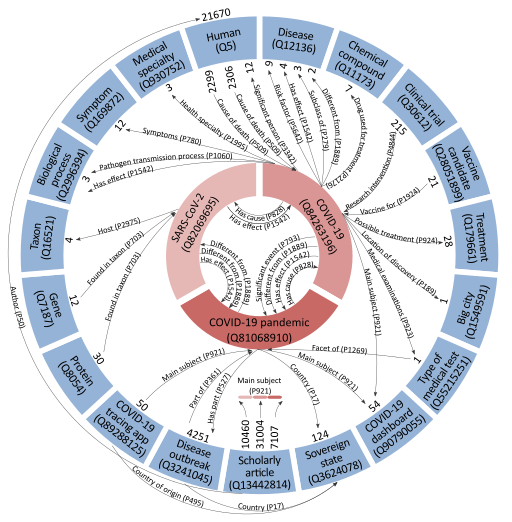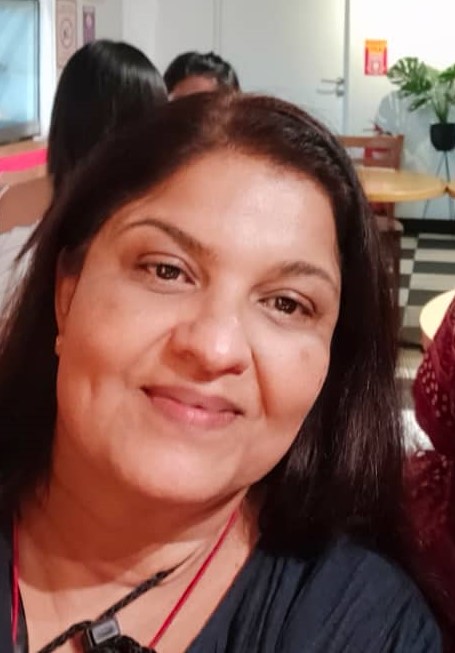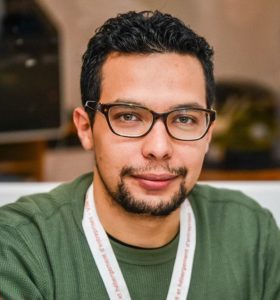 We’re back with another ‘Meet the CC Summit Presenter’ Q&A — next up is Houcemeddine Turki. A long-term Wikimedian, Houcemeddine has contributed to Wikipedia and sister projects since 2009. He is also an open science advocate promoting the use of free licenses, like Creative Commons Licenses, in research and code publishing among Tunisian research scientists for years. He is concerned about the spread of information about the usefulness of free computer resources to develop real-life computer applications at a low cost, from the perspective of science policy and scholarly research. As a Wikimedian, Houcemeddine was among the first members of Wikimedia Tunisia User Group in 2014, serving as GLAM and Education Coordinator for the affiliate between 2018 and 2019 as Vice-Chair of the group since 2019. Moreover, he was involved as a member of the Programme Committee of the WikiIndaba Conference, the Premier African Conference of Wikimedia Community, in 2018 and 2019. Furthermore, he currently serves as a member of WikiIndaba Streering Committee, of Wikimedia and Libraries User Group Steering Committee, and of Wikimedia Foundation Affiliation Committee. “In real life”, Houcemeddine is a medical student and research assistant at the University of Sfax, Tunisia. He is affiliated to the Data Engineering and Semantics Research Unit, a local research structure that focuses on the development of knowledge-based systems based on freely available computer resources.
We’re back with another ‘Meet the CC Summit Presenter’ Q&A — next up is Houcemeddine Turki. A long-term Wikimedian, Houcemeddine has contributed to Wikipedia and sister projects since 2009. He is also an open science advocate promoting the use of free licenses, like Creative Commons Licenses, in research and code publishing among Tunisian research scientists for years. He is concerned about the spread of information about the usefulness of free computer resources to develop real-life computer applications at a low cost, from the perspective of science policy and scholarly research. As a Wikimedian, Houcemeddine was among the first members of Wikimedia Tunisia User Group in 2014, serving as GLAM and Education Coordinator for the affiliate between 2018 and 2019 as Vice-Chair of the group since 2019. Moreover, he was involved as a member of the Programme Committee of the WikiIndaba Conference, the Premier African Conference of Wikimedia Community, in 2018 and 2019. Furthermore, he currently serves as a member of WikiIndaba Streering Committee, of Wikimedia and Libraries User Group Steering Committee, and of Wikimedia Foundation Affiliation Committee. “In real life”, Houcemeddine is a medical student and research assistant at the University of Sfax, Tunisia. He is affiliated to the Data Engineering and Semantics Research Unit, a local research structure that focuses on the development of knowledge-based systems based on freely available computer resources.
Based in : Sfax, Tunisia
: Sfax, Tunisia
Summit Session: Creative Commons and Computer Programming
How did you get involved with Creative Commons?
As a contributor to Wikimedia Projects, I have always been in contact with Creative Commons Licenses, and I have been familiar with them for a long time. Effectively, the Creative Commons Licenses opened ways to spread Wikipedia and sister projects across all continents. Such an outcome encourages me to get involved in sharing knowledge about free licenses in my own country. I believe this can improve the quality and visibility of our local research and development. That is why I have worked with other individuals to create a research unit that interests in free licenses. Thankfully, we succeeded in co-founding this research unit as part of the University of Sfax, a major university in Africa. We look forward to defining research policies that are motivated by common free licenses.
How many times have you been to CC Global Summit?
This is the first time I made it to the CC Global Summit.
In the future, what is something you would like to see at the CC Summit?
I would like to see more experiences about the adaptation of Creative Commons Licenses to support specific open applications. This can be inspiring for us as a developing world to develop our usage of CC Licenses.
Why are you an advocate for Open?
There are a lack of resources that can be used for the development of computer applications in Africa, particularly in Tunisia. Without freely available databases and codes, the enhancement of computer science research in my underdeveloped continent will be impossible.
“We cannot stand as a worldwide community without open sharing.”
What is your proudest achievement?
My most important achievement is to share open resources with international research communities. I was honoured to introduce many research scientists to Wikimedia Projects and help them get involved with Wikimedia Research.
What is the best part of what you do? What is the most difficult part of what you do?
The best and most difficult part of what I always do is that I succeed to publish research papers in highly referred journals with the support of Wikimedia Community. This requires high-level research skills, as well as advanced knowledge of Wikimedia Projects. As well, this requires a long-term commitment, as revising research outputs is time-consuming and exhausting. However, this is worth it.
What is your favorite GIF?

Thomas Shafee, CC BY 4.0, via Wikimedia Commons
What tool/platform/app are you loving right now?
Wikidata is currently the most promising knowledge base. I really love it because it hosts many communities as part of its open ecosystem. Nowadays, many people contribute to it on a daily basis and reuse its core knowledge in useful applications thanks to its CC0 License and flexible data model.
What’s one new trend that you think the CC community should look out for?
The current trend I have observed is there are efforts to create a distributed architecture to host license information for products and outputs. Such a technology (e.g. Blockchain) can be useful to show copyright information for items when preserving creators’ privacy. I think the CC Community can benefit from such architectures to keep track of the services using Creative Commons Licenses and to efficiently spread them around the world.
What is the biggest setback you have experienced? How did you overcome it?
The biggest setback I always experience is the issue of license compatibility. I overcame it by reading lots of technical documentation about this issue. However, this was not easy for me, and I do not see that many people would be very comfortable in doing this.
If you could only leave people with one message from your summit presentation, what would it be?
Creative Commons Community should involve more people from different disciplines. Specialized people are the most skilled people that can point the main legal concerns in their field of interest.
What was the best career advice you ever received? What was the worst career advice you ever received?
The best career advice I have ever received is to get involved in the talk groups of CC-related communities in social networks. I have learned a lot from active people there. You can have information not just by directly asking useful questions, but also by reading the discussions of other active participants. I did not receive bad advice. Even the worst advice can be useful to learn what does not effectively work, and to adjust thinking skills.
What would you like to say to Creative Commons on our 20th anniversary?
Thank you Creative Commons for supporting the open sharing of valuable resources that help many communities develop their projects and get interesting outcomes.
What does ‘Better Sharing, Brighter Future’ mean to you?
It means a lot to me. We cannot stand as a worldwide community without open sharing. The Global North needs socioeconomic and cultural information about developing countries to develop and sell their products, and have significantly higher incomes. The Global South requires specialized datasets about detailed ground knowledge to build their knowledge-based systems.
Join us from wherever you are for the 2021 CC Global Summit, which takes place 20-24 September! Register here >>
The post Meet the CC Summit Presenter: Houcemeddine Turki appeared first on Creative Commons.

 : La Plata, Argentina ; Cologne, Germany
: La Plata, Argentina ; Cologne, Germany 

 We’re back with another
We’re back with another 

 We launched the ‘
We launched the ‘